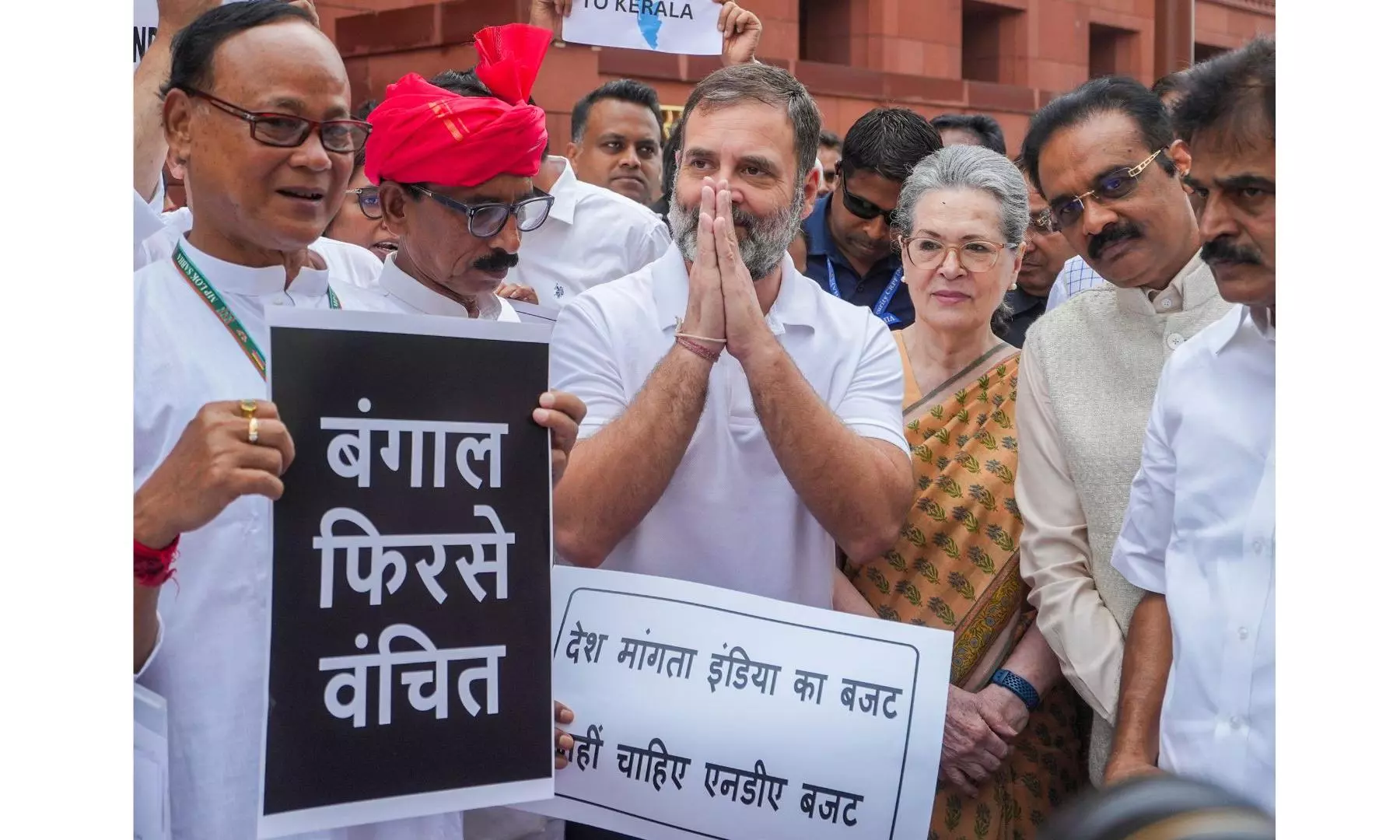AA Edit | Opp-govt tussle on Budget upholds democratic norms
India's 2024 elections reaffirmed Modi’s leadership, highlighting a polarised Budget debate with Rahul Gandhi’s dramatic critique and Sitharaman's data-driven rebuttal

The political scene may have changed somewhat in India with the Lok Sabha elections of 2024 even if it did largely throw up a verdict for the status quo with BJP’s Narendra Modi helming it in a third term. The rise of a more vociferous Opposition with a new leader in the Lok Sabha occupying a post that was vacant in the previous two Parliaments has meant that things are closer to the new reality in which the divisions between a coalition government and a generally more united Opposition are clearly marked and serving a basic democratic norm of opposing views being heard in the House.
There may have been hyperbole and melodrama in references to the Mahabharata and the battle formations described in it in Rahul Gandhi’s reply to the Budget, but it does appear that he makes his point with clarity. Doubtless, such attacks on the Treasury benches do tend to come with some colourable references as in his naming six personalities at the centre of “Chakravyuh”. And it was, perhaps, in the fitness of things in a parliamentary debate that the Treasury bench came back with an unflattering reference to the Opposition as “Duryodhana” out of the same epic.
The times are, however, so polarised with distinctly partisan views being projected that a national divisiveness is manifest in any issue in a virtually everyday kind of occurrence. If Rahul Gandhi could express his fears freely of a framework of monopoly business being strengthened by the Budget whereas the small and medium businesses and the middle class were feeling hard done by, the finance minister Nirmala Sitharaman could bank on hard data to demolish many of the arguments put up by the Opposition to deride the Budget 2024-25 that was presented by her on July 23.
Leaving behind the theatrical and dramatic references to one of the beloved epics of India that a Union minister also leaned on to hit back at the Opposition leader, the finance minister’s vast references to data on inflation, allocations to SC, ST and women, etc., did go some way to bring out hard truths in comparative statistics on many vital parameters with regard to UPA-1 and 2 10 years and the NDA-1 and 2 10 years in office.
With statistics drawn from a study of Budgets presented in the last 20 years, the finance minister was able to annihilate the argument of bias in that only two states were named in the last presentation. It appears the UPA had been habituated to leaving out the names of most states in budgets in their time. Of course, this does not mean those states were excluded from allocations, a point well established in a debate about a budget which, however, was as much about optics and perceptions as it was about facts and figures.
In the discord to which we are inured now as a nation what may have been submerged was the prudent fiscal management that brought the fiscal deficit down gradually over the years, and quite drastically last year in the fastest-growing major economy, rising capex, some reduction in income-tax for the middle class and a total absence of populism — aspects of the management of the economy that must be acknowledged, regardless of partisan politics. The finance minister’s spirited defence of her government’s rule did make her seem the winner in a debate that upheld democratic norms of equal time to diverse voices.